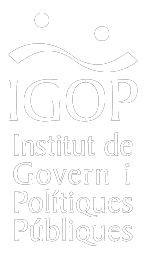Contents
Contents
Our Masters consist in a series of module sessions (which include lectures, discussions of readings and student presentations), a Master Thesis (to be defended by the end of the first academic year in the Political Science Master, of the second year in the Advance Research master). and professional practices (Advance Research).
ECTS= European Credit Transfer and Accumulation System
MUCP= Official master’s degree in Political Science
The student handbook (Student’s Guide) details all relevant information about the master, including professors, timetables, and important dates for agendas.
Democracy and Citizenship (compulsory, 10 ECTS). The objective of this module is to discuss the principle contemporary debates in the field of democratic theory, and will address the following: the conditions facilitating the development and stability of democracies; the role of political parties in democratic systems; democracy and social citizenship; and the challenges faced by contemporary democracies, including transnationalism and citizen participation in decision-making processes.
Public Policy Analysis and Management (compulsory, 10 ECTS). This module focuses on the major theoretical and methodological models for the analysis and management of public policies. It explores three key areas: research in the subfield of policy analysis, the treatment of complex social and political problems, and organizational environments in politics and public management.
Introduction to Research (compulsory, 10 ECTS). The objective of this module is to provide the necessary methodological tools for the successful development of a Master’s thesis and a PhD dissertation. It analyzes the main stages of the research process, the different strategies available to the researcher, and the problems and limitations that occur in any empirical investigation. Some sessions are devoted to the presentation of research projects carried out by professors of the department with an emphasis on methodological issues.
Research Methods (compulsory, 10 ECTS). This module enables students to identify and apply the main existing methods for collecting and analyzing evidence in political and social research. The course includes quantitative and qualitative methods.
Sociopolitical Marketing (optional, 10 ECTS). This module explores different aspects of political communication, electoral campaigns, electoral processes, and electoral behavior, with particular emphasis on the instruments and tools that serve to analyze political markets.
European Integration: Theories and Political Process (optional, 10 ECTS). This module analyzes the main theories that seek to explain both the process of European integration and the changing nature of the EU. It considers the institutional design, the actors involved and the relations between the EU and its member states mainly from the Europeanization perspective.
Migration policy in the EU (optional, 10 ECTS). The overall objective of the module is to provide analytical, conceptual and empirical tools to study migration and diversity, with an emphasis on two main themes: the relationship between citizenship and migration, and the relationship between migration and labor market. Please note that this course is taught in Spanish.
Spanish and Catalan Politics (optional, 10 ECTS). The aim of this course is to provide a comprehensive overview of the Spanish and Catalan political system from the transition to democracy onwards: institutions and territorial organisation, parties and elections, political culture and behaviour, policy-making, the urban dimension of politics and relations with the EU. .
Master’s Thesis The Master’s thesis should be a substantial piece of work that demonstrates the student’s competence to carry out research autonomously. It should contain a research question, a well structured theoretical framework and a suitable research strategy. Master’s theses can be written and defended in English, Catalan or Spanish. (compulsory, 10 ECTS MUCP; 30 ECTS MURACP)





